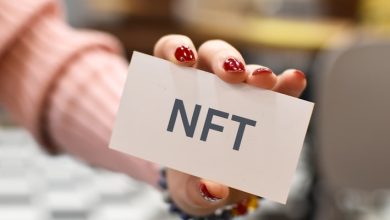Blockchain Innovations in Digital Identity Verification

- The Rise of Blockchain Technology in Digital Identity Verification
- How Blockchain is Revolutionizing the Way We Verify Identities Online
- Enhancing Security and Privacy with Blockchain-Based Identity Verification
- Exploring the Potential of Decentralized Identity Verification on the Blockchain
- Key Advantages of Using Blockchain for Digital Identity Verification
- Future Trends in Blockchain Innovations for Secure Identity Verification
The Rise of Blockchain Technology in Digital Identity Verification
Blockchain technology has been increasingly utilized in the realm of digital identity verification. This innovation offers a secure and decentralized way to verify identities, reducing the risk of fraud and identity theft. By leveraging blockchain, individuals can have more control over their personal information and how it is accessed by various parties. This rise in blockchain technology for digital identity verification marks a significant shift towards a more secure and efficient way of managing identities online.
One of the key advantages of using blockchain for digital identity verification is the immutability of the data stored on the blockchain. Once information is recorded on a blockchain, it cannot be altered or tampered with, ensuring the integrity of the data. This feature adds an extra layer of security to the verification process, giving users peace of mind that their identities are protected. Additionally, the decentralized nature of blockchain means that there is no single point of failure, making it more resilient to cyber attacks.
Another benefit of blockchain technology in digital identity verification is the increased transparency it provides. Users can track who has accessed their information and when, giving them greater visibility and control over their digital identities. This transparency can help build trust between users and service providers, fostering a more secure and reliable online ecosystem. Moreover, the use of blockchain can streamline the verification process, reducing the time and resources needed to verify identities.
Overall, the rise of blockchain technology in digital identity verification represents a significant advancement in how identities are managed and verified online. With its emphasis on security, transparency, and efficiency, blockchain offers a promising solution to the challenges posed by traditional identity verification methods. As more industries and organizations adopt blockchain technology for identity verification, we can expect to see a more secure and user-centric approach to managing digital identities in the future.
How Blockchain is Revolutionizing the Way We Verify Identities Online
Blockchain technology is changing the way we verify identities online, offering a more secure and efficient solution compared to traditional methods. By storing identity information in a decentralized and encrypted manner, blockchain eliminates the need for third-party verification services that are vulnerable to hacking and data breaches. This revolutionary approach ensures that personal data remains safe and tamper-proof.
One of the key advantages of using blockchain for identity verification is the ability to provide instant verification without compromising privacy. Users can control who has access to their information through the use of private keys, granting permission only to trusted parties. This level of control gives individuals greater autonomy over their data, reducing the risk of identity theft and fraud.
Moreover, blockchain technology enables seamless cross-border identity verification, eliminating the need for cumbersome and time-consuming verification processes. This is particularly beneficial for industries such as finance and healthcare, where quick and reliable identity verification is crucial. By leveraging blockchain, organizations can streamline their operations and improve customer trust.
Enhancing Security and Privacy with Blockchain-Based Identity Verification
Blockchain technology offers a promising solution for enhancing security and privacy in digital identity verification processes. By utilizing blockchain-based identity verification, individuals can have more control over their personal data while ensuring the integrity and authenticity of their identities.
One of the key benefits of using blockchain for identity verification is the decentralized nature of the technology. Instead of relying on a central authority to store and verify identity information, blockchain allows for a distributed network of nodes to validate transactions securely and transparently. This reduces the risk of data breaches and identity theft, as there is no single point of failure for malicious actors to exploit.
Additionally, blockchain technology uses advanced cryptographic techniques to secure data, making it nearly impossible for unauthorized parties to tamper with or manipulate identity information. This ensures that individuals can trust the accuracy and integrity of their digital identities, leading to increased confidence in online transactions and interactions.
Exploring the Potential of Decentralized Identity Verification on the Blockchain
Exploring the potential of decentralized identity verification on the blockchain opens up new possibilities for secure and efficient authentication processes. By leveraging blockchain technology, individuals can have greater control over their personal information and how it is shared. This shift towards decentralized identity verification eliminates the need for third-party intermediaries, reducing the risk of data breaches and identity theft.
One of the key benefits of decentralized identity verification on the blockchain is its immutability. Once identity information is stored on the blockchain, it cannot be altered or tampered with, providing a high level of security and trust. Additionally, the use of smart contracts can automate the verification process, streamlining operations and reducing costs.
Furthermore, decentralized identity verification on the blockchain can enhance privacy by allowing individuals to selectively disclose only the necessary information for a particular transaction. This minimizes the exposure of sensitive data and reduces the risk of unauthorized access.
Key Advantages of Using Blockchain for Digital Identity Verification
Blockchain technology offers a wide range of advantages when it comes to digital identity verification. Let’s take a closer look at some of the key benefits:
-
Immutable Records: One of the primary advantages of using blockchain for digital identity verification is the immutability of the records. Once information is recorded on the blockchain, it cannot be altered or tampered with, providing a high level of security and trust in the verification process.
-
Decentralization: Blockchain technology operates on a decentralized network, which means that there is no central point of control. This decentralization reduces the risk of a single point of failure and enhances the security of digital identity verification.
-
Transparency: The transparency of blockchain transactions allows for increased visibility into the verification process. Users can track the verification steps in real-time, providing a clear audit trail and enhancing trust in the system.
-
Efficiency: Blockchain technology streamlines the digital identity verification process by eliminating the need for intermediaries and manual checks. This efficiency not only saves time but also reduces costs associated with identity verification.
-
Security: The cryptographic algorithms used in blockchain technology ensure that sensitive personal information is securely stored and transmitted. This security feature protects against identity theft and fraud, making blockchain a reliable solution for digital identity verification.
Future Trends in Blockchain Innovations for Secure Identity Verification
Blockchain technology is continuously evolving, opening up new possibilities for secure identity verification. One of the future trends in blockchain innovations for this purpose is the integration of biometric data. By incorporating biometric information such as fingerprints or facial recognition into blockchain systems, the verification process can become even more robust and reliable.
Another promising trend is the use of smart contracts for identity verification. Smart contracts are self-executing contracts with the terms of the agreement directly written into the code. By utilizing smart contracts in blockchain-based identity verification systems, users can securely store and verify their identity without the need for intermediaries.
Additionally, decentralized identifiers (DIDs) are gaining traction as a means of digital identity verification on the blockchain. DIDs allow individuals to have full control over their digital identities, enabling them to selectively disclose information to third parties while maintaining privacy and security.
Furthermore, the concept of zero-knowledge proofs is revolutionizing identity verification on the blockchain. Zero-knowledge proofs allow one party to prove to another party that they know a certain piece of information without revealing the information itself. This innovative approach enhances privacy and security in identity verification processes.
In conclusion, the future of blockchain innovations for secure identity verification is bright, with advancements in biometric data integration, smart contracts, decentralized identifiers, and zero-knowledge proofs paving the way for more secure and efficient verification processes. These trends hold great promise for enhancing digital identity security in various industries and applications.



